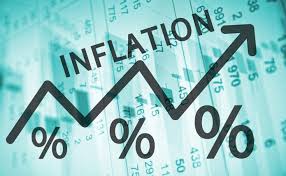Inflation is likely to peak in the first quarter of 2023, and ease to around 25% by the end of 2023, the Bank of Ghana’s November 2022 Monetary Policy Report has disclosed.
This forecast is however conditioned on the tightness of monetary policy and the deployment of tools to contain excess liquidity in the economy.
The report said “there are, however, upside risks to the outlook, emanating from the persistent upward adjustments in ex-pump petroleum products and transport fares with associated second-round effects on the pricing of goods and services”.
“Additionally, the proposed VAT increase and currency pressures may exert upward pressures on headline inflation. Amid these concerns, however, it is expected that the continued tight monetary policy stance would moderate the spillover effects”.
Therefore, the Bank of Ghana stated that continued vigilance to the evolution of these potential price pressures in the outlook will be key.
The Monetary Policy Committee of the Bank of Ghana increased the policy rate by 250 basis points to 27% in November 2022, citing significant upside risks to the inflation outlook.
“In the outlook, significant upside risks remain arising from both domestic and foreign sources. Global inflation remains high and persistent, driven largely by food and energy prices. Central banks’ concerted efforts to contain price pressures globally have led to aggressive policy tightening across advanced economies”.
On the transmission of monetary policy changes to inflation, the Central Bank said there is evidence that the policy rate increases in the past few months have helped dampen the pace of monthly price increases. “Between May and August 2022, the monthly inflation numbers eased from a peak of 5.1% to 1.9%. However, this was reversed in September and October 2022 on account of additional shocks from upward adjustment in ex-pump petroleum prices, utility tariff adjustments, and transport fare increases”, it added.
Inflation hits 50.3% in November 2022
Inflation went up by 9.9% to 50.3% in the month of November 2022, according to latest figures from the Ghana Statistical Service.
This is the highest figure recorded in 27 years.
The increment was expected because of fuel price increases and the cedis’ depreciation during the month under review.
However, the trend may halt or reverse in December 2022 due to the recent improvement in the value of the cedi to the dollar and fall in fuel prices.
Latest Stories
-
Today’s front pages: Monday, November 25, 2024
6 mins -
T-bill auction: Government misses target again; interest rates continue to rise
8 mins -
We have a bad technical team; Otto Addo and his team should go – Ernest Thompson
1 hour -
Hindsight: Why Accra Lions’ present problems do not define them
2 hours -
10-year-old Lisa Laryea arrives at Wits Donald Gordon Hospital in South Africa for bone marrow transplant
2 hours -
23 ambassadors inducted to take on 2025 GSTEP Challenge in three regions
3 hours -
Ghana Shea Workers Union inaugurated
3 hours -
I trust Bawumia; he has never lied to me – Akufo-Addo
3 hours -
Bawumia is hardworking; offers the youth platform to share ideas – Kow Essuman
3 hours -
IGP, Police commanders worship with churches in Ghana as part of security arrangements for 2024 elections
3 hours -
Mahama is a failed president; give Bawumia a chance – Akufo-Addo to Ghanaians
3 hours -
‘No child left behind in Free SHS’ – Akufo-Addo declares
4 hours -
MMDAs tasked to pay more attention to TB cases
4 hours -
2024/25 GPL: Defending champions Samartex suffer second consecutive loss as Basake Holy Stars wins 1-0
4 hours -
Government stands firm in Galamsey fight, says Akufo-Addo
4 hours

